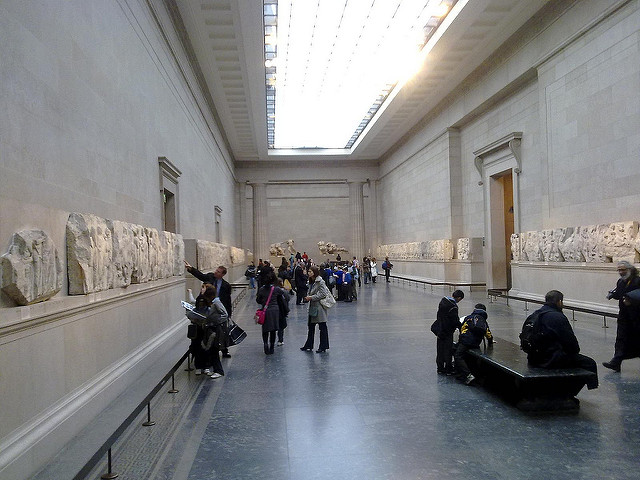
22 August 2019 during a State visit to France, Greece's Prime Minister Mitsotakis asked President Macron for the loan from the Louvre of a metope.This request was made for Greece's bicentennial independence celebrations in 2021. The Louvre would, in return, receive a collection of bronze artefacts from Greece.
Paul Cartledge, professor of Greek Culture at the University of Cambridge and the vice chairman of the British Committee for the Reunification of the Parthenon Marbles and the IARPS (International Association) commented to The Art Newspaper: " We hope for and expect much more: the reunification in the Acropolis Museum of all bits of the Parthenon held in museums outside Greece—not only [the sculptures] from the British Museum. The Greek government will certainly reciprocate most handsomely with spectacular loans, such as those going to the Louvre no doubt will be.”
To read The Art Newspaper article, please follow the link here.
On 22 March, Alexander Herman wrote an article also in The Art Newspaper explaining the difficulties that surround recognition and admission of title. If the British Museum were ever to consider a long-term loan of the pieces, Greece would need to first accept that the trustees hold title, an acceptance successive Greek governments have never been willing to make.
"But title need not be so contentious. Perhaps the Greek government could accept the simple premise that the trustees hold title under English law, but go no further? This would not have to relate to the circumstances of acquisition in Athens. It need only be a recognition that a run-of-the-mill Act of Parliament settled the question of English title back in 1816. Likewise, the British Museum would need to understand that title is a nationally derived right and does not automatically guarantee rights at an international level. This could perhaps allow the parties to put the question of title aside" writes Alexander Herman.
While a loan might not result in Greece's long awaited permanent restitution, it would bring some pieces back to the Acropolis Museum, where they would be seen by millions in their original context with views to the Parthenon, which still stands. Marking a memorable event and breaking of the deadlock by starting a dialogue between London and Athens.
Read more on this article here.
31 August & 01 September Helena Smith reported in the Guardian and Observer that Prime Minister Mitsotakis would be looking for a loan from the British Museum to coincide with Greece's bicentennial independence celebrations in 2021.
Prime Minister Mitsotakis explained that “given the significance of 2021, I will propose to Boris: ‘As a first move, loan me the sculptures for a certain period of time and I will send you very important artefacts that have never left Greece to be exhibited in the British Museum’.”
Adding: “Of course our demand for the return of the sculptures remains in place. I don’t think [Britain] should be fighting a losing battle. Eventually this is going to be a losing battle. At the end of the day there is going to be mounting pressure on this issue.”
There are 21,000 known archaeological sites in Greece,” said the culture minister, Lina Mendoni, a classical archaeologist. “We have 10 times more than we can possibly exhibit. Almost every day something valuable is found. We want to export these cultural assets.”
Read the updated Guardian (04 September 2019) article here.